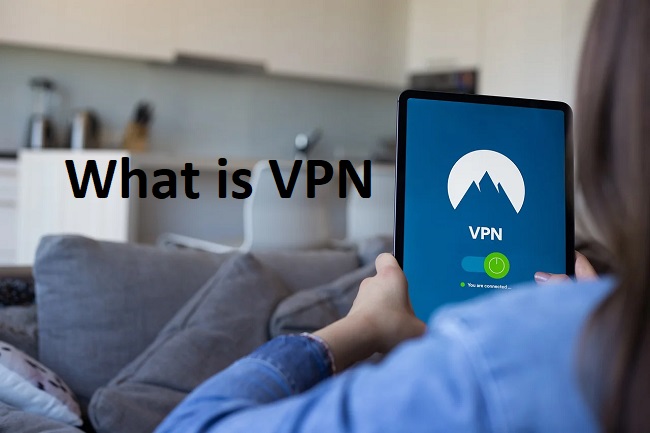The internet has reshaped the world, empowering us to access information, communicate, and work from anywhere. However, this digital freedom comes with concerns about privacy and security. A Virtual Private Network (VPN) emerges as a savior here.
But what exactly is a VPN, and how does it work? This comprehensive guide will demystify VPNs, offering a thorough explanation of their operation and their critical role in the digital age.
In the increasingly connected world we inhabit, the significance of privacy and security cannot be overstated. As we navigate through the digital landscape, VPNs serve as essential tools to maintain our online privacy and safeguard our data. By understanding VPNs and their operation, you can leverage them to secure your online activities.

What is VPN
A VPN is a service that allows you to connect to the internet securely and privately. By creating a secure, encrypted tunnel between your device and a VPN server, it hides your online activities from your Internet Service Provider (ISP), hackers, and even the government.
This encrypted tunnel ensures that the data transmitted and received is secure from prying eyes.
How Does a VPN Work?
The functioning of a VPN can be broken down into a few simple steps:
Connection: When you connect to a VPN, the VPN client on your device sends a request to the VPN server.
Encryption: The VPN server encrypts your internet connection, turning your data into code to make it unreadable to anyone who intercepts it.
Secure Tunnel: This encrypted data then travels through a secure tunnel between your device and the VPN server.
Decryption: Upon reaching the VPN server, the data is decrypted before being sent to the internet.
Masked Identity: The VPN server acts as a middleman, masking your IP address with its own. This conceals your identity, location, and online activities.
Why Use a VPN?
Using a VPN offers several benefits:
Privacy: A VPN hides your online activities from your ISP and potential eavesdroppers.
Security: The encryption offered by a VPN secures your data, even on unsecured public Wi-Fi networks.
Geo-Spoofing: By masking your IP address, a VPN allows you to appear to be browsing from a different location, bypassing geo-restrictions.
Conclusion
In a world where digital privacy and security are paramount, understanding and utilizing a VPN can be a game-changer. A VPN, with its encryption and secure tunnels, offers an effective shield against potential intruders.
So whether you’re surfing the web from home or a café, a VPN ensures your online journey is secure and private.
The digital realm is vast, and while navigating it, a VPN serves as a reliable compass and shield. By understanding its workings, you can not only safeguard your online privacy but also unlock the full potential of the internet.
Frequently Asked Questions
Here are some of the frequently asked questions to this topic:
1. Q: Will using a VPN slow down my internet connection?
A: It can, as the encryption process and the journey your data takes via the VPN server can potentially slow down your connection. However, with a high-quality VPN service, this decrease is often barely noticeable.
2. Q: Is it legal to use a VPN?
A: In most countries, yes. However, some countries have restrictions or outright bans on VPN usage. It’s important to understand the laws of your country or any country you’re traveling to.
3. Q: Can I use a VPN on all my devices?
A: Yes, most VPN services allow their use across multiple devices, including computers, smartphones, and tablets. Some even offer services for routers or smart TVs.
4. Q: Does a VPN make me anonymous online?
A: A VPN significantly improves your online privacy, but it doesn’t make you completely anonymous. Potential vulnerabilities can still expose your identity, such as cookies and browser fingerprinting.
5. Q: Is it okay to use a free VPN?
A: While there are free VPN services available, they often have slower speeds, data caps, and may lack robust security features. They might even sell your data to third parties. It’s generally recommended to use a reputable, paid VPN service to ensure your data’s security and privacy.


